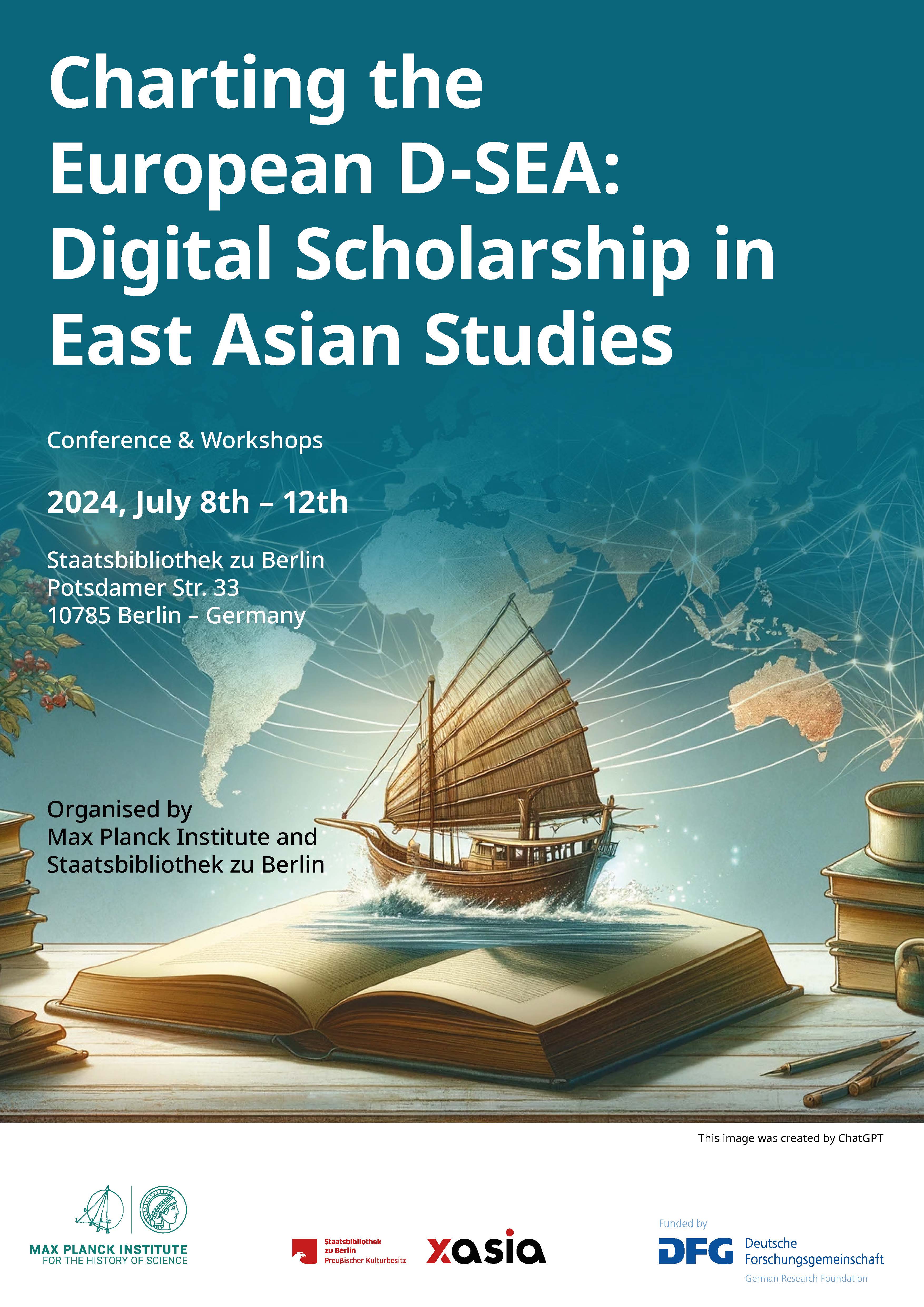ChinaComx to Present at a Digital Humanities in East Asian Studies Conference in Berlin on 8-12 July
19 June 2024

ChinaComx researchers Aijia Zhang and Damian Mandzunowski will take part in the workshops and conference Charting the European D-SEA: Digital Scholarship in East Asian Studies jointly organied by the Max Planck Institute for the History of Science and the Berlin State Library – Prussian Cultural Heritage, to be held on 8-12 July 2024 in Berlin.
Damian will also present on 12 July a joint paper titled “Beyond Manga and Marvel: Digitally Approaching Chinese Comics (Lianhuanhua),” which provides overview of the DH scope of ChinaComx – paper abstract:
For many years now digital humanities (DH) scholars have approached graphic narratives such as comics as primary sources for digitally enhanced academic engagements with culture, history, or society. However, extant literature mainly focuses on US-American comic books, Japanese manga, or French/Belgian bandes dessinées. Lianhuanhua, a type of Chinese comics mostly consisting of a single image panel with a few lines of text below, are by and large overlooked—and this despite their untapped potential as novel sources for DH scholarship. Through the ERC-funded research project “Comics Culture in the People’s Republic of China (ChinaComx)” we aim to expand the related fields by introducing lianhuanhua as a new source employing digital tools, programming, and computer vision. While contemporary Chinese webcomics can be downloaded and read on mobile devices, earlier lianhuanhua were produced on low quality paper and in small pocket-size format resulting in a distinct instability of the books. Their materiality is a key characteristic of this medium, defining it both as a distinct type of graphic narrative while also pointing toward shared elements with other comics of different origins. Making use of the digitized CATS-Seifert Collection of Chinese Comics at Heidelberg University consisting of over 3000 unique lianhuanhua, ChinaComx makes extensive use of digitizing the physical records, advanced OCR-ing, and AI-assisted automatized translation of large datasets consisting of the image-text dyads. Furthermore, we also plan to do DH aided visual analyses, using methods such as visual language processing or network analysis, to delve into issues such scene composition, stylometry or genre defining visual features of lianhuanhua. The results of these, collected and made available to the public via an OA digital database, will not only allow non-Chinese speakers to read and engage with lianhuanhua, but they will also present engaging case studies to be picked up and expanded by other DH scholars. ChinaComx will thus also digitally preserve lianhuanhua and make them available for university and school classroom use. In this proposed presentation, we will give an overview of the ChinaComx sources, DH approaches and potential issues related to ethics and longevity of digital scholarship on Chinese comics.
See the complete workshops program and abstracts here, and the conference program and abstracts here.



